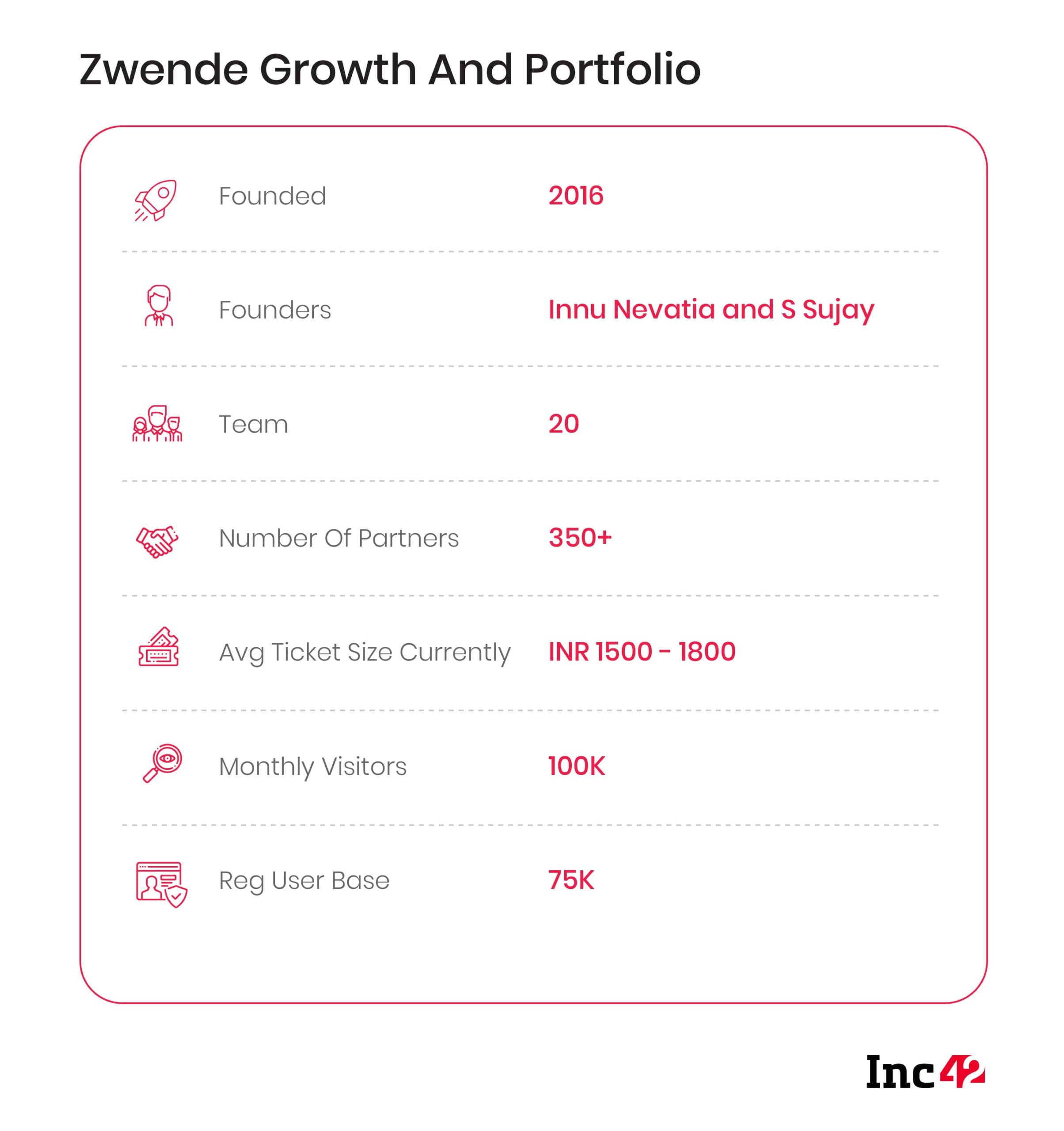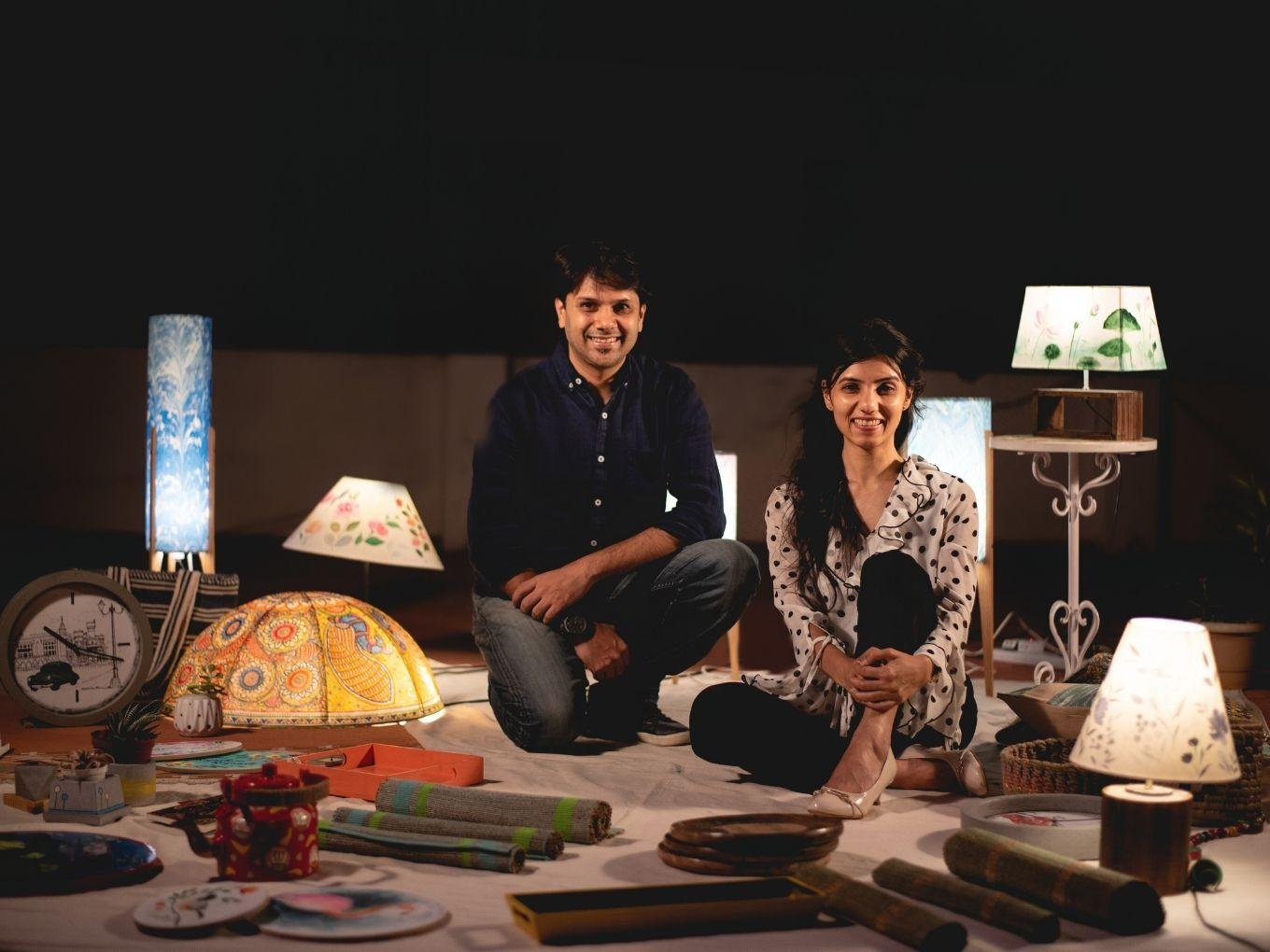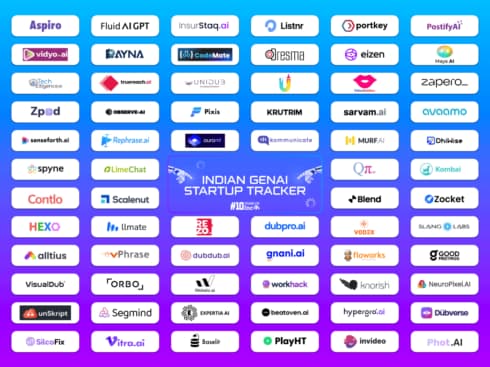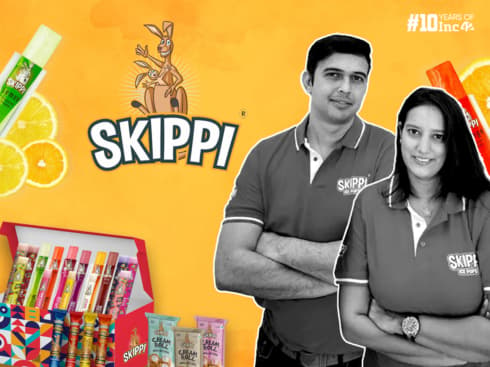Founded in 2016 by S Sujay and Innu Nevatia, Zwende aims to help designers and artisans reach customers efficiently
Not only is it a marketplace for art forms across the country, but the startup also hosts virtual workshops and classes to promote them
Currently, the startup claims to have over 10 Bn SKUs across more than 100 artforms from over 350+ designers
As a young married couple, Sujay S and Innu Nevatia faced a problem that would be familiar to most couples looking to set up a new home. Finding the right home decor pieces is not just an expensive ordeal but gets complicated for those looking for unique and distinguished pieces for home decor. While scouting through flea markets, ecommerce websites, decor stores and more, can deliver results, as our couple found out, it’s not always fruitful.
“The entire journey was extremely invigorating and made us wonder whether there are other people who are looking for something that truly complements their taste,” recalled Sujay S, cofounder of arts, crafts and home decor ecommerce marketplace Zwende.
Talking to their friends helped the couple realise that the problem was faced by homeowners everywhere in India. And while India has such a rich history and tradition of arts and crafts designers and artisans, the challenge has always been about bringing these to market and reach customers efficiently.
“Thus, the seed of Zwende was planted and we drove our passion to revive and preserve age-old Indian artforms. Our goal is to turn local artists and artisans into micro-entrepreneurs who would handcraft customisable products and make these timeless artforms palatable for the current generation,” Sujay explained.
As a marketplace for home decor, arts and crafts products, Zwende not only provides a platform for crafts makers and artisans but also manages the end-to-end delivery cycle. It takes care of packaging and fulfilment of the orders and considering that each product is made to order, the focus is on limiting the dependency of the artists on technology for fulfilment and packaging.
“We had to ensure that we build a very simple OMS (order management system) which helps them get details of the order at the click of a button, not only via email but also via WhatsApp,” added cofounder Nevatia.
To help the artisans and designers reduce the turnaround time of the deliveries, the startup ensures suppliers have the data about the bestselling SKUs or products so that the relevant raw materials and items can be stocked up by the artists.
Currently, the startup claims to have over 10 Bn SKUs across more than 100 artforms from over 350+ designers. Also, the startup recently became the first Indian startup to be featured in the AWS startup showcase series ‘Now Go Build’, with Amazon CTO Werner Vogels.

Saving And Promoting Indian Artforms
In 2019 alone the global art business was valued at around $64.1 Bn, thriving on touch and feel and social networking. The pandemic, however, massively disrupted the art market, forcing artists and designers to adopt new ways of selling. In these times, ecommerce platforms such as Zwende have come to the rescue.
Bengaluru-based Craftizen Foundation, which is enabling traditional artisans with sustainable livelihoods, leveraging craft-based skill development, felt the impact first hand. The foundation claims to have helped over 1.2K artists and is currently managing 18 skill training and livelihood centres across Bangalore, Hyderabad and Kolkata.
“While pre-Covid the work was fine, our business took a major hit during the lockdown and the pandemic. I think the biggest setback was because of the fact that we were mostly a B2B business. It was actually Zwende that opened us up to the possibilities of going B2C,” said Craftizen founder Mayura Balasubramanian.
Similarly, Mayuri Choudhary, who operates art collective ‘ChirpChirpFly’, was presented with the opportunity of teaching Urban Sketching to people in and around Bengaluru. Her efforts though were majorly impacted by the pandemic and the resultant social distancing norms.
“Initially my workshops came to a complete halt, but thankfully Zwende was quick to help me recover from this. And soon we started virtual workshops. An offline class which once hosted less than 20 people, has gone online and today my classes have more than 500 people from across age groups,” said Choudhary.
Sonali Singh Rao, who has been promoting ‘Resin art’ on the Zwende platform, said that it is not only about online workshops but also selling products. “Resin products take time to dry and thus it is not possible to make fast deliveries. And Zwende provides me with that time, considering it provides customised products, I can take my time to polish and dry the product, and charge basis the work that has been done on it,” added Rao.
While designers, freelancers and SMBs alike are benefitting from the solutions of the startup, it is also responsible for the birth of a few new startups such as Rangreli. This early stage startup is focussing on providing handcrafted and hand-painted home decor and stationery products. “Kumarika, my wife, is the artist here and I am a self taught photographer. We met Zwende in one of the flea markets at Bengaluru and were soon hopping on the platform, starting with teaching the artform, and constantly launching new products and designs, we are now making 30X as many sales through Zwende than we were through the flea markets,” said Prashant, cofounder, Rangreli.
Commenting on the brands and artisans on the platform, Zwende’s Nevatia said, “It’s all about data-driven design, fast-fashion and co-creation. We work with designers who use their creativity to contemporise age old artforms. They marry their understanding of the modern day consumer with the craftsmanship of artisans, this means the artform is being adapted to newer products.”
Additionally, the startup has put in place a feedback loop that collects data on users’ interactions on the website which is used to not just recommend the right product to customers but also influences new products and design launches. Each interaction between the customer and the Zwende paves the way for a data driven improvement in product experience.
The Challenges And The Future For Zwende
When asked of the challenges for the platform, Sujay said, “India is a land of diversity and culture and each art/craft form has its own challenges, and many are still practised in remote locations. In order to create an integrated platform that celebrates this potential, it meant a lot of exceptions to rules. It meant complex data analytics and rule engine algorithms, and a totally new way of thinking to solve for this creative supply chain.”
Besides bringing artists on board, the challenges include setting up the technology and process for various artforms, materials and product categories.
“Our core is to power demand-led supply and our platform needed to support this from day one so that we could have quick feedback loops, launch new designs while balancing scale and efficiency. Also, as we have millions of textures and combinations in the back-end, we had to ensure the volume of data doesn’t slow down the system.”
Even though the pandemic hit several small and big businesses negatively. Within 48 hours of the nation-wide lockdown, Zwende took all of its offline workshops online, which inspired customers to learn more than 100 artforms from the comfort of their home. It also did help the startup fill in people’s need for a creative outlet. During this time, Sujay told Inc42 that their monthly user base grew over 5X.
“We launched over 150 new artists and designers and grew storefronts of some of our existing partners by 10x during this time. With offline spends slowly moving online, makers on Zwende have seen upto 15x growth in revenues during the pandemic,” added Nevatia.
Going further, the startup plans to stay focussed on supplying in India but also expand to global demand with a key focus on the US market. From a supply perspective, the startup already has more than 100 artforms from 10 different states in India and will be expanding to other states in the next six months.
“From a product point of view, we are completely data-driven and demand-led. We only launch products that we see high demand in and that customers provide us with inputs on. We see the home decor and craft supplies/ DIY kits categories growing a lot over the coming months,” said Sujay.
































 Ad-lite browsing experience
Ad-lite browsing experience